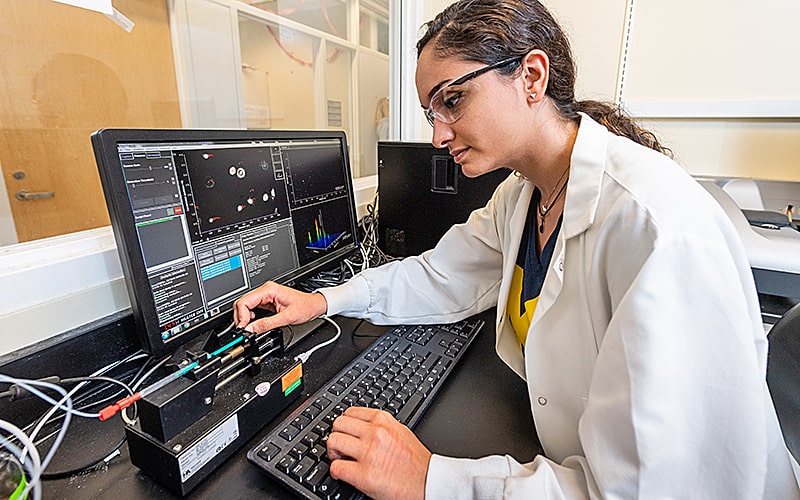What is a Chemical Engineer?

Chemical engineers apply mathematics, chemistry and other natural sciences to develop economical ways of using materials and energy for the benefit of mankind. In short, we make chemistry happen in useful ways.
At the undergraduate level we learn how to design the reactors where the chemistry happens: the pipes and pumps that get materials to and from the reactors, the separation processes based on equilibrium processes or mass transfer to purify the desired materials, and techniques to ensure that the materials we dispose of are environmentally sound. We design the heat transfer equipment necessary to get materials to the right temperature or make sure that reactors maintain desired temperatures. We understand the thermodynamics to determine if reactions will take place, and we design the control systems to keep plants runs smoothly.
Still, we do more than design and run manufacturing plants. Our graduates work in the pharmaceutical, biomedical, electronic, food, consumer product, chemical, petroleum, materials and environmental industries. Some also go to medical school, dental school or law school, focusing on environmental or patent law.
The principles of chemical engineering apply to a broad range of applications, including biology and medicine. If we understand diffusion through a system, we can work on tissue engineering, determining how far apart blood vessels need to be to make sure that oxygen can diffuse to all parts of a tissue. The same fluid dynamics needed to understand flow through pipes can explain how blood moves through a blood vessel. The methods we use to determine the outcomes competing reactions apply equally to the competition between an allergen and allergy medicine for a particular receptor in a cell in your body. This quantitative angle on biology and medicine allows us to make unique contributions to these fields.
This video will tell you more about chemical engineering and specifically chemical engineering at Michigan, please watch our video.